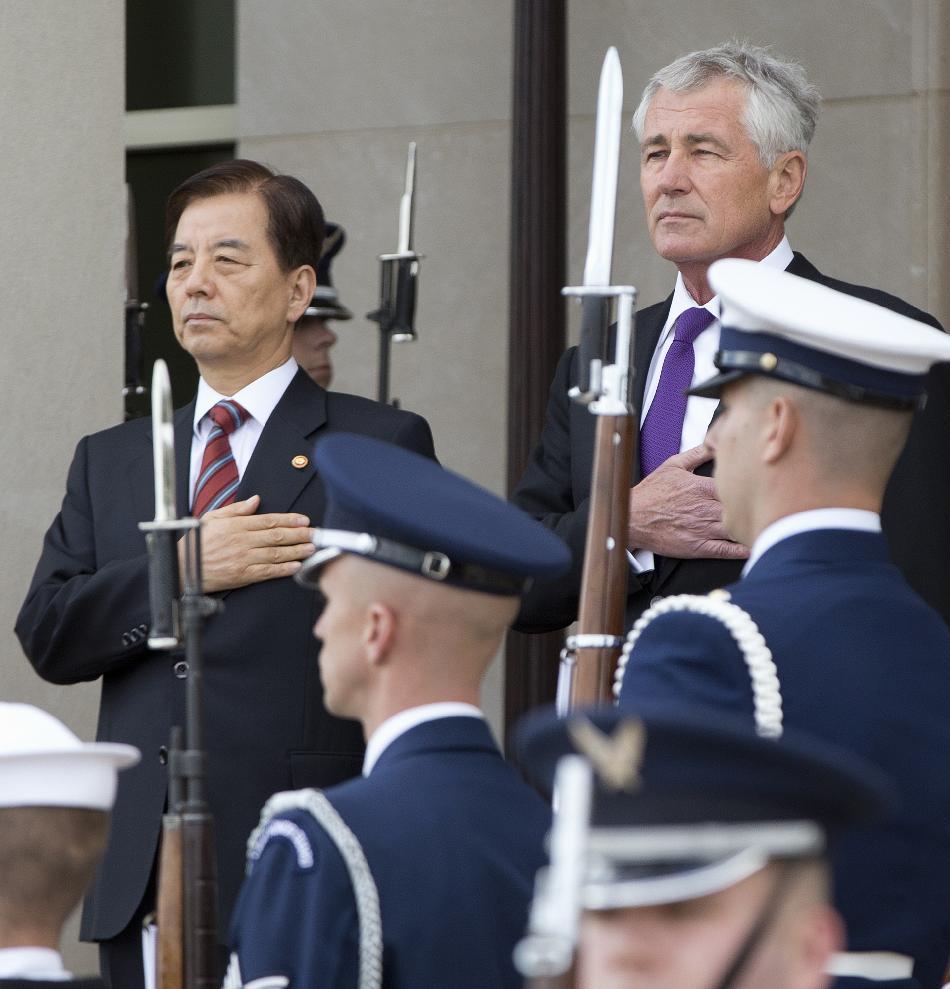U.S. and South Korea delay troop command transfer
The U.S. will maintain control of South Korean troops in the event of war with the North, the two sides said, delaying again a long-planned command transfer. Both sides attributed the delay to “an evolving security environment” and an “intensifying” threat from Pyongyang. South Korea retains peace-time control of its forces, and discussions on a transfer of power back to Seoul in the event of a war have been ongoing for several years. The U.S. has held wartime command of South Korean troops since the 1950-1953 Korean War that ended in a truce without a peace treaty.
While this agreement will delay the scheduled transfer of operational control, it will ensure that when the transfer does occur, Korean forces have the necessary defensive capabilities to address an intensifying North Korean threat.
U.S. Defence Secretary Chuck Hagel
The new agreement marks the second time that a transfer of control has been delayed, reflecting concern about North Korea’s nuclear missile program and doubts about the adequacy of South Korea’s defenses. The transfer had been due to take place in 2012 and was then delayed until 2015. No new date has been set for it to occur. The two Koreas remain technically at war, because the Korean War ended in an armistice and not a peace treaty. North Korea has conducted three nuclear tests in recent years, plus several rocket launches seen as tests of long-range missile technology.

Asia-Pacific